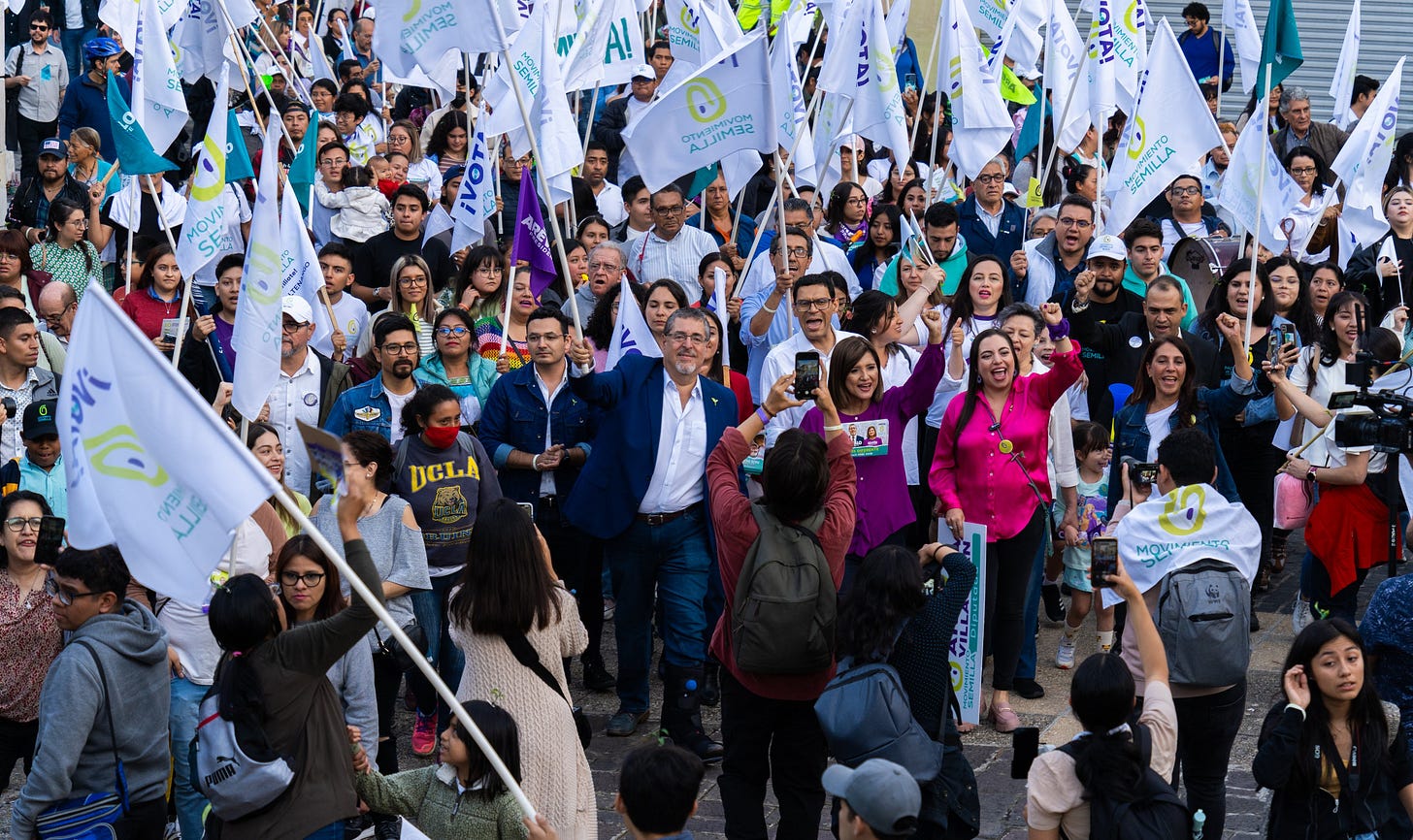Guatemala is set for its most progressive presidency in decades

Among Central American countries, Guatemala has a reputation for being one of the most conservative in the region. The left has been shut out of the country’s presidency for decades, with brief periods of centrist rule. Towards the end of last year, it seemed as if the country was lurching towards a nostalgiac authoritarianism that is not uncommon across the world right now.
Instead, that prognostication has been flipped on its head. After a shock first round result that brought the progressive Semilla Movement’s candidate into the runoff - and a subsequent ill-fated attempt to dissolve this result- the party appears poised for victory, crushing former Guatemalan first lady Sandra Torres in a new poll.
The Semilla Movement is a relatively young party, founded in 2017. This newsletter talked to one of their legislators back in December for a quote on Zury Ríos, the aforementioned daughter of former dictator Efraín Ríos Montt. Until the final days of the campaign, it did not seem as though the party would make major waves in the presidential election. As recently as May, polls saw their candidate, Bernardo Arévalo, at just 1% of the vote in the first round. He ended up with over 15%.
Arévalo is the son of one of the last presidents of the Guatemalan left, Juan José Arévalo, whose successor from the same party was ousted in a coup d’etat in 1954. His unlikely rise is owed in part to the absence of another major left-wing contender in the recent presidential election, indigenous leader Thelma Cabrera, whose candidacy was nullified by the electoral commission in an extremely controversial move.
It’s fair to wonder how Cabrera would have performed, given the total polling miss. Cabrera polled with competitive support in at least one survey prior to her campaign’s suspension.
While attempts to overturn the first round were ultimately unsuccessful, the ordeal emblemizes the stakes in this election. After more than a decade of right-wing rule, the country’s political establishment could be reluctant to relinquish power. The Semilla Movement has made combatting political rot a focus of its campaign, and though they won’t control parliament, some officials in a country with a reputation for political impunity may be nervous about a potential Arévalo administration shining light on the issue.
In fact, the government’s recent actions have already highlighted Guatemala’s “rampant corruption” for an international audience.
Time will tell whether Arévalo is actually successful in staging a crusade against abuses of power in government. First, he would need to win the election. With a lead of over 20 points and only two weeks until the vote, that seems the likely result, but recent history suggests anything can happen.
If Arevalo does win, Guatemala will cap off a cycle of surprise election outcomes across Latin America. With the enhanced impact of social media-based campaigning, and instability becoming a deepening feature of political landscapes across the globe, that may be a trend that is here to stay.
Do you enjoy international political news from Populism Updates? Support the newsletter by pledging for a paid subscription. You’ll only be charged when it launches, and gain early access to important coverage from around the world. It really helps!



